Impact Story
Sankofa Learning Center
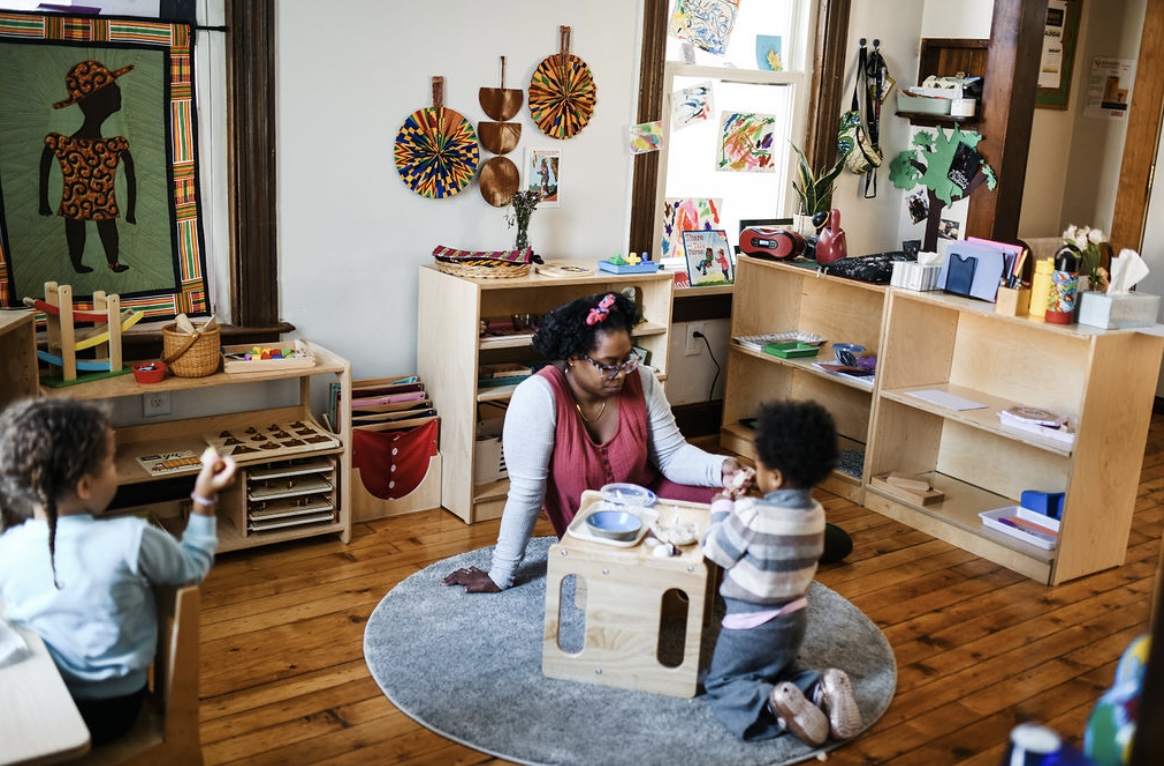
Sankofa Learning Center is an African-centered early learning program for families in New Haven. The school honors the Black diaspora and provides a healing space for families to reimagine school as a place of love and liberation. Sankofa Learning Center is the first Wildflower school in Connecticut, and founder Amelia Sherwood plans to grow Sankofa into a holistic center for children and families from birth through age six.
Amelia’s school vision stems from her experiences growing up as a Black
child in Connecticut, attending a racially homogeneous Catholic school,
and working in private and public Montessori schools. Through those
experiences, she developed a dream of starting a Black-centered space for students and families in New Haven. Her vision was seeded through her creation of a Black homeschooling collective, which eventually bloomed into Sankofa in 2023. Amelia has also been a powerful voice for Montessori as a tool for social and racial justice and liberation, using her social media reach to educate, inspire, and engage more Black, Indigenous, and People of Color in Montessori teaching and learning.
Sankofa draws its name from a symbol used by the Akan people of
Ghana, depicting a bird with its head turned around, taking an egg from its back. This imagery expresses the importance of bringing ancestral knowledge to the present to reclaim heritage and culture. The school honors the contributions and stories of students’ ancestors, working to equip students to live freely even in the midst of structural racism and internalized oppression.
Impact Story
Pinyon Montessori
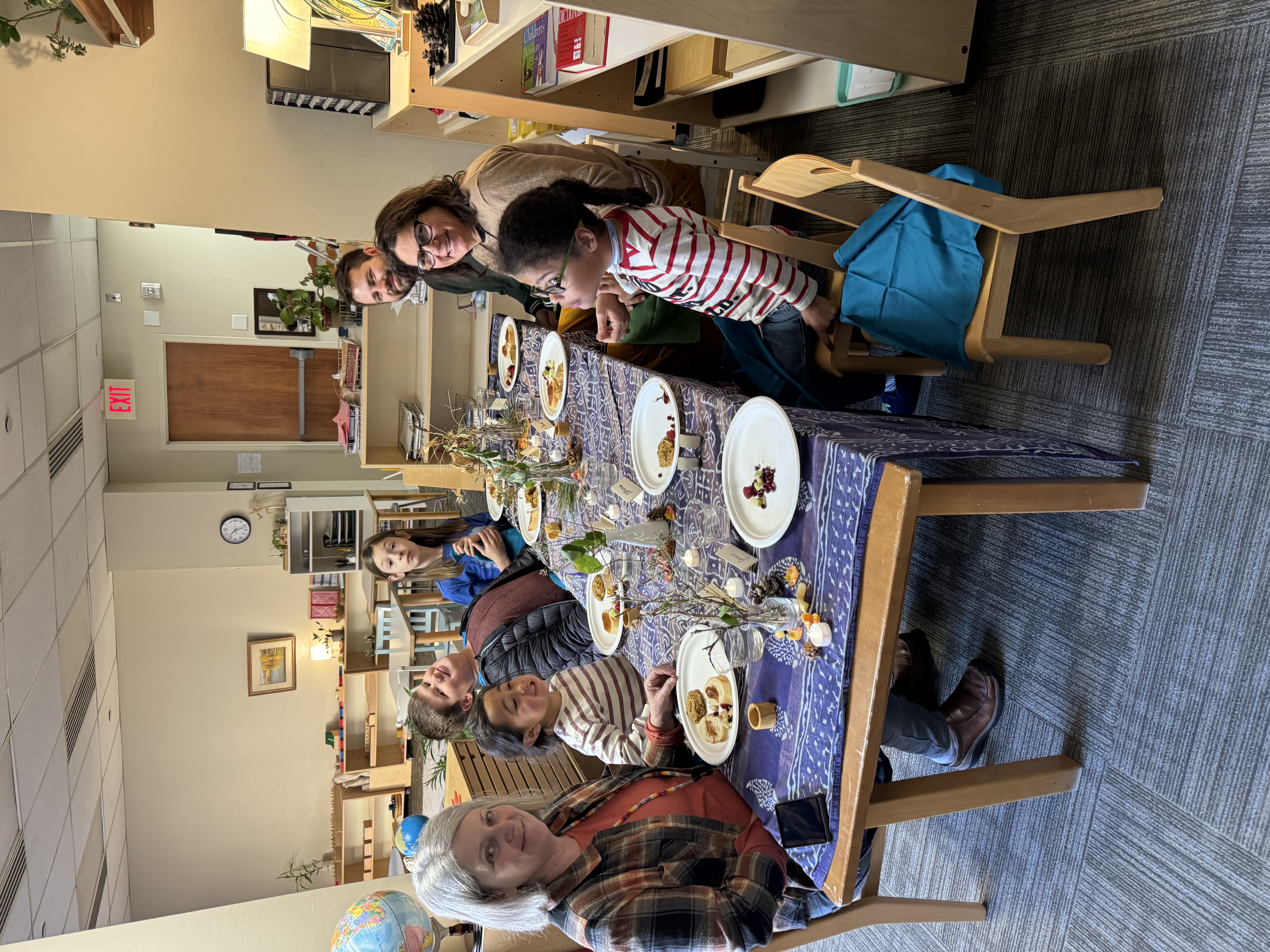
As the first Wildflower school in Utah, Pinyon Montessori brings to life the vision and dedication of its founding Teacher Leaders, Brandi Allen, Chip Reichanadter, and Margaret Mc Donald, and creates a pathway for future schools in the region. With decades of collective Montessori
experience, the Founding Teacher Leaders’ dream was to create a school that would be accessible to all families, regardless of income, and oriented to the individual needs, identities, and strengths of each child.
Pinyon serves preschool and elementary students in a space co-located within a local affordable housing development. The school intentionally expands access to Montessori through its graduated tuition structure and by harnessing public funding through the Utah Fits All Education Savings Account program. A central tenet of Pinyon’s model is nurturing
deep connections between students and their community. The inaugural class of children helped design Pinyon’s classrooms to reflect students’ needs and voices and created rituals and traditions that will be woven into the lasting fabric of the school. Pinyon’s central location
in downtown Salt Lake City allows students to immerse themselves in the city, from exploring neighboring parks and trails to participating in local service projects, fostering students’ personal relationships with their neighborhood from an early age.
In its first year, Pinyon has attracted a student body that mostly identifies as neurodiverse, illuminating the unmet need many Salt Lake City families have for school environments where their children are centered and seen as individuals with unique learning journeys. The students have also surfaced their shared experience of social isolation throughout the pandemic, and Pinyon’s Teacher Leaders take great pride in the caring peer relationships their school community has formed.
Impact Story
Flame Lily Montessori School
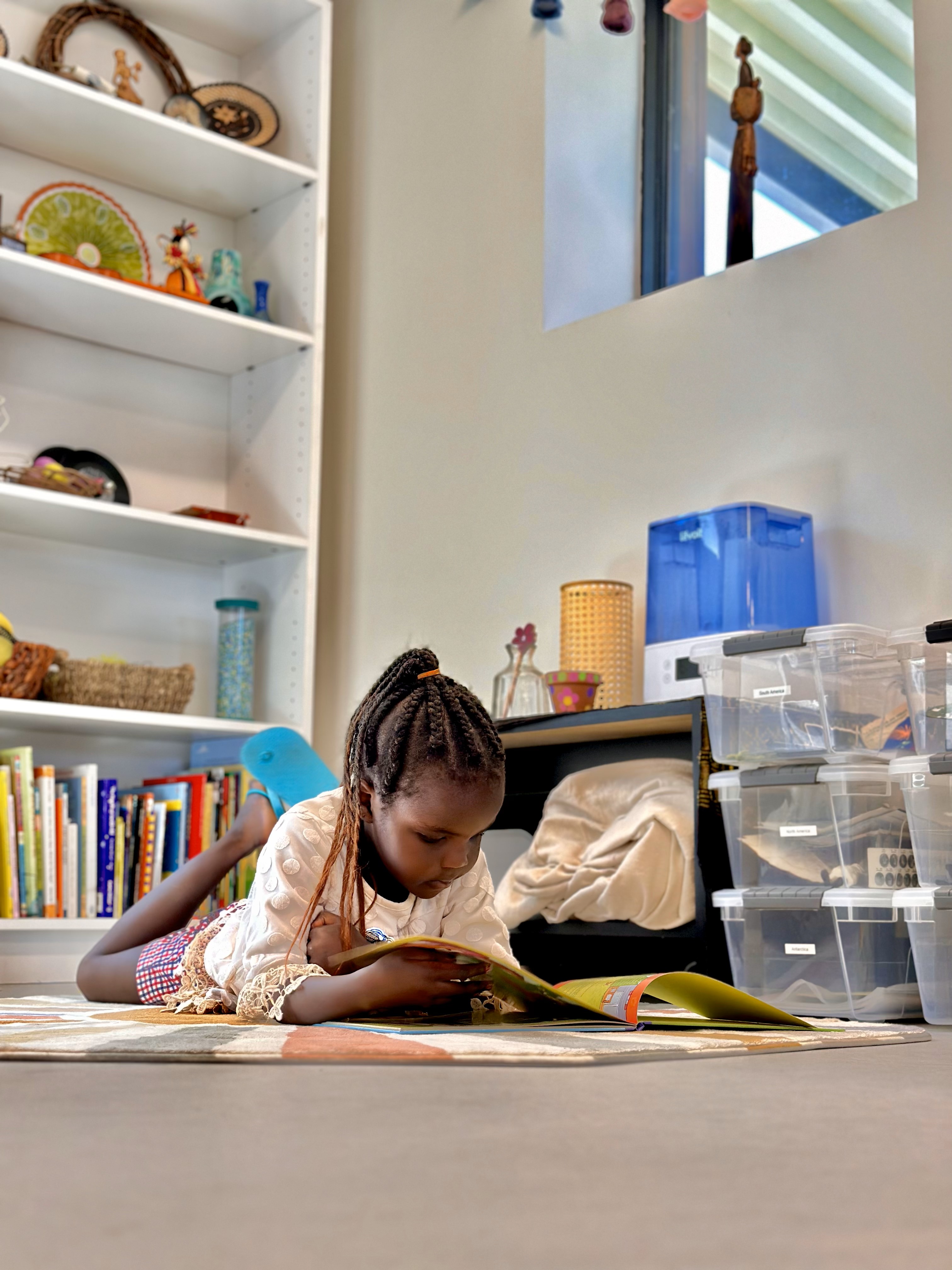
Flame Lily Montessori is a primary school co-located with Project Worthmore, an Aurora nonprofit that primarily serves international refugee families who have relocated to the Denver area. Currently, 85% of Flame Lily’s students are refugees or immigrants from countries including Rwanda, the Democratic Republic of the Congo, and Myanmar. Their partnership with Project Worthmore ensures Flame Lily can support families who are new to the community—and often the country—as they acclimate to their new homes and restart their careers. Their co-location uniquely positions Flame Lily to provide high-quality childcare for families who earn low and middle incomes in an area designated a childcare desert by the Center for American Progress. Before Flame Lily opened, no licensed childcare provider existed in the area.
Many of their students are English Language Learners. Teacher Leaders Ana Celedon and Caroline Alsmeyer support their peaceful focus and concentration during work cycles through consistent modeling, using sign language, and creating a prepared environment that supports the children and breaks down language barriers.
Flame Lily has become a home away from home for both children and the educators. Caroline and Ana equipped the classroom’s cozy corner with comforting plush toys and fidgets that cater to specific children’s interests and needs. They have created a beautiful patio playground through funding from Kaboom! and The Colorado Health Foundation. The construction and setup of the playground was a family affair for parents, grandparents, and the extended school community who volunteered hours of labor and expertise together. Each day, Ana and Caroline look forward to coming to a school that radiates joy and beauty to the children and their families.
Impact Story
Acacia Montessori School
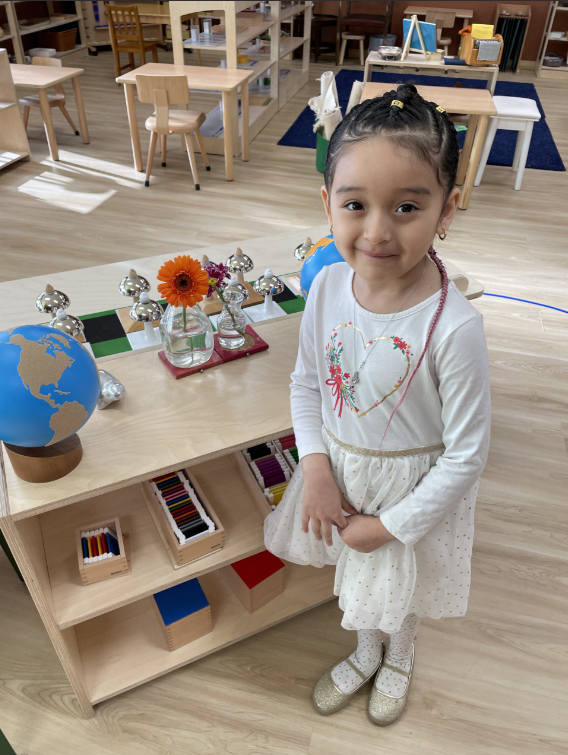
Acacia Montessori in Apple Valley, MN is dedicated to nurturing minds and fostering a sense of unity, with a special emphasis on Somali language and culture. Apple Valley and its surrounding Saint Paul suburbs are home to many Somali immigrants, and Acacia is a welcome option for families seeking community building and cultural enrichment for their young children. Currently, all students at Acacia qualify for Minnesota’s Child Care Assistance Program, and Acacia is committed to offering at least 60% of its spots to families who qualify for public support as the school grows.
Few of Acacia’s enrolled families have had direct exposure to Montessori in the past. Through intentional parent / caretaker education and engagement, families’ appreciation for Montessori principles and methods is growing, and many are asking for Somali translations of Montessori materials to use at home. While Acacia incorporates cultural materials, stories, art and textiles, music, and influence from cultures across the whole world, they have a special focus on Somali culture. Through familiar language, foods, music, stories and materials, Teacher Leaders say students quickly feel at home in the school. They are proud to hear from families that students are excited about school and are getting themselves ready to go in the morning. Just as Saido and Abdilahi dreamed of, the children are carrying the independence they’re developing at school into the rest of their lives and are learning to explore the world around them and the many cultures that make up their community.
Impact Story
Rain Lily Montessori School
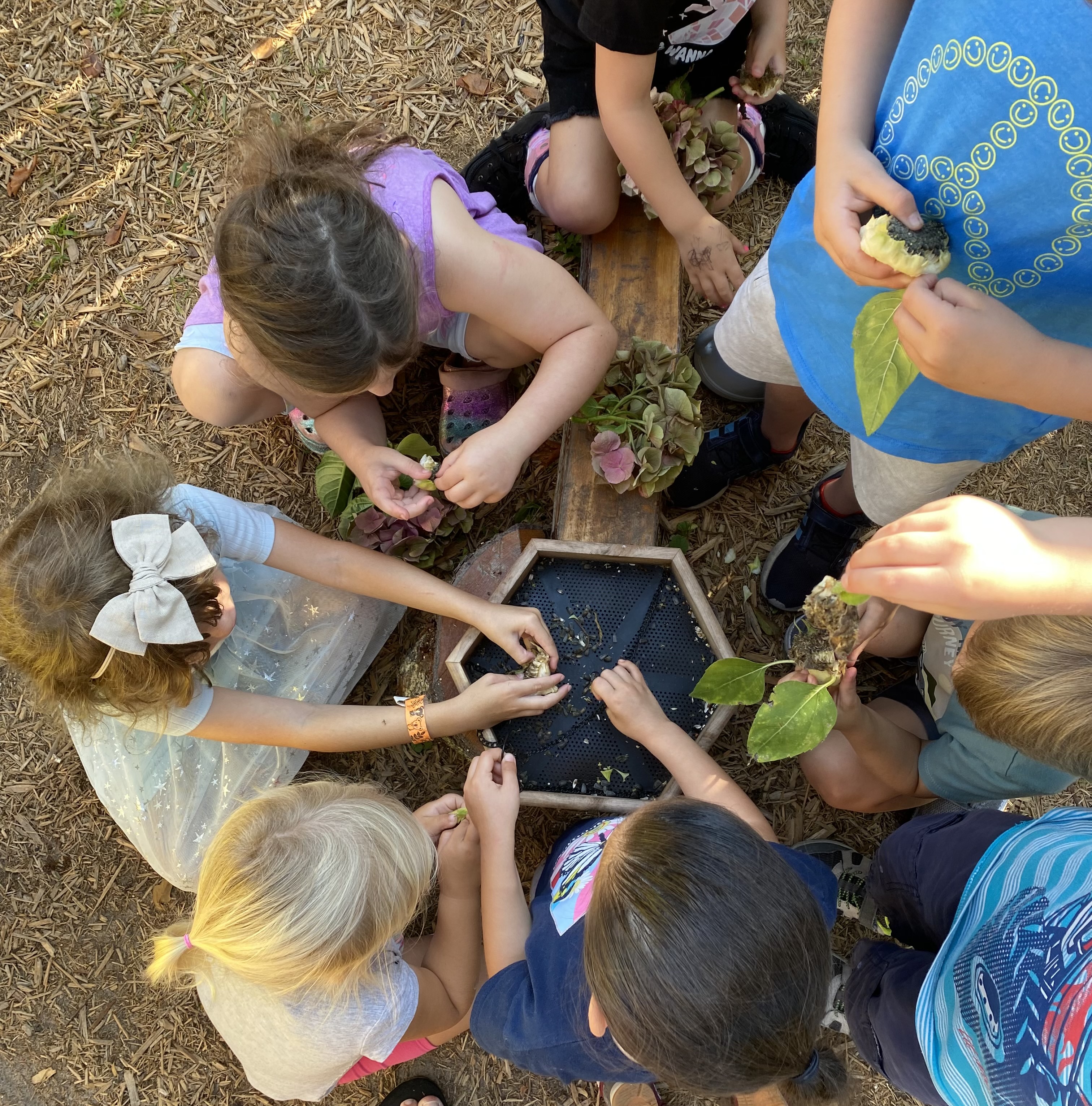
Rain Lily Montessori School is a beacon for place-based education. As community members who are deeply rooted in the area, Founding Teacher Leaders Tania Castro and Kati McClurg have witnessed the region’s rapid growth and rising cost of living—and the resulting scarcity of affordable childcare options and tensions as the cultural, historic and economic demographics of the community shifts. Kati and Tania’s work is grounded in a commitment to bring accessible and inclusive Montessori education to a diverse group of families. To achieve this goal, Rain Lily uses Florida scholarships and public educational support programs and actively supports families in accessing these funds. The school also operates on a tiered Family Individualized Tuition model to ensure accessibility for families who earn middle incomes and are grappling with the local cost of living.
Nature is an essential part of Rain Lily’s curriculum and school community, as the school is working to become one of the first certified Nature Explore Classrooms in Northeast Florida. Kati and Tania regularly present lessons in their outdoor classroom, a carefully designed environment crafted from locally sourced, natural materials and featuring an inviting natural archway entrance, rustic tree stump seating, a serene peace area, and an interactive children’s garden.
Rain Lily is committed to the inclusion of all people and regularly participates in social justice events and conversations in Fernandina Beach and Amelia Island. This year, the school received the American Montessori Society’s Ursula Thrush Peace Seed Grant, a testament to their dedication to peace and social justice education.
Impact Story
Honeypot

Honeypot Montessori was founded by Deja and Taysiah with a simple belief in the effectiveness of Montessori as a method and the importance of its accessibility for diverse people. They are the first Montessori school and the first nature school in Newark, NJ, designed to help close the “nature gap,” which too often leaves children of color, especially in low-income communities, with limited access to green spaces and the healing benefits of outdoor play.
Honeypot currently enrolls 100% Black students from the neighborhood. It is a joyful place where children are encouraged to freely explore and learn while embracing who they are. For Deja and Taysiah, creating a culture of joy and liberation means living out their own inner child and being themselves too. As teacher-administrators, they follow their instincts and respond to children’s social emotional needs in the moment as they see best – sometimes shifting plans to truly listen to each child. Taysiah, as both a founder and a parent at Honeypot, takes immense pride in creating a school where her outgoing young black son can be himself, use his voice, and be heard.
At Honeypot, children are thriving through the combination of Montessori and nature-based pedagogies. The simplicity and coherence within these approaches allow children to grasp complex concepts effortlessly. They actively engage in activities such as planting, weeding, harvesting, and tasting, all while learning about sustainability and the impact of climate change.
Impact Story
Blazing Stars
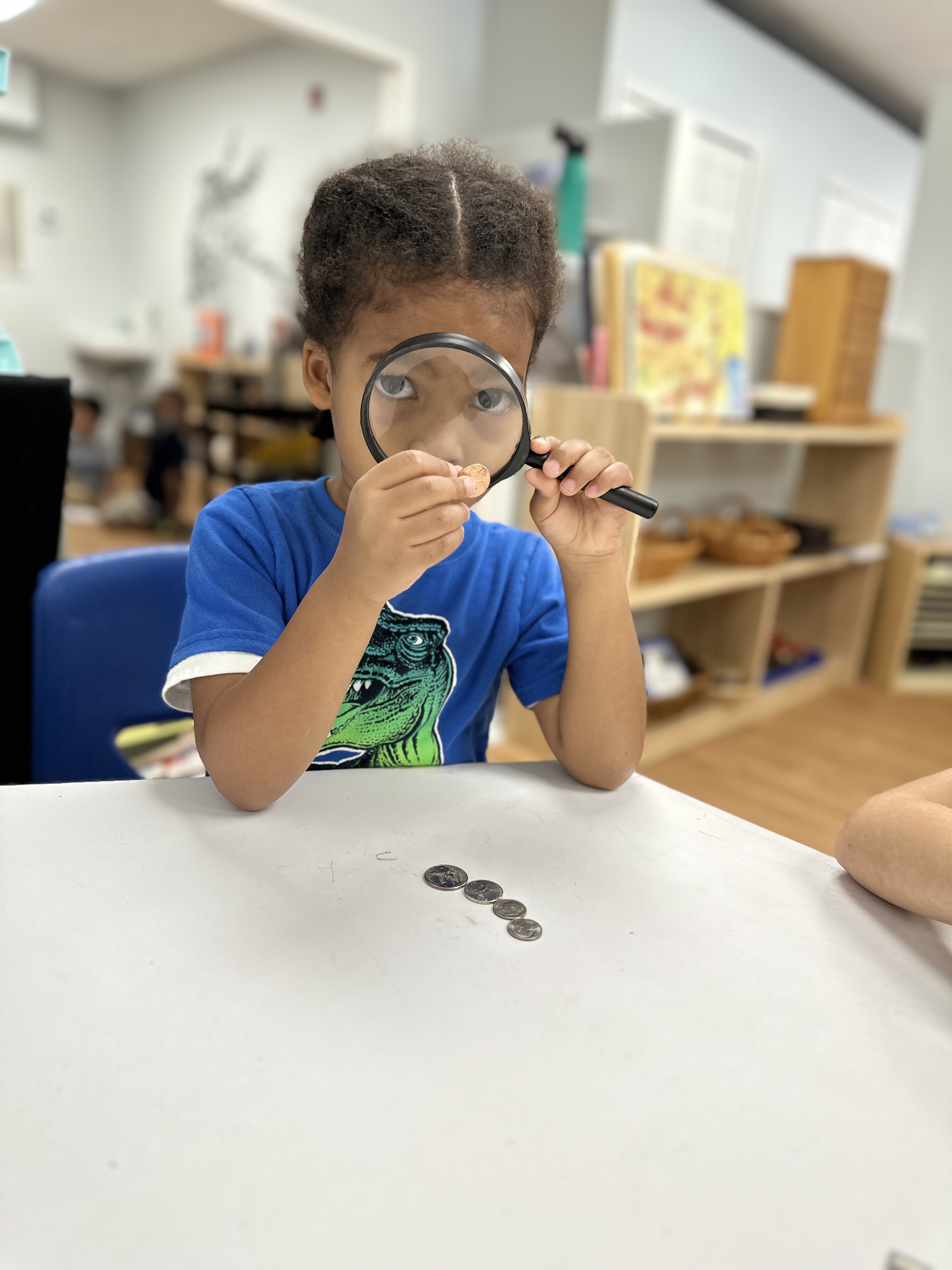
Blazing Stars Montessori began as a shared dream between two educators and mothers who wanted a safe environment where their three brown boys could flourish as themselves – especially in the aftermath of George Floyd’s death. As LaTania and Kameeka close out their first school year, they are most proud of their school’s diverse student body – Blazing Stars is a thriving community of about 75% low to middle income families, 70% BIPOC families, as well as students with learning differences. LaTania and Kameeka were able to create this diverse school by building a culture of liberation and wholeness that starts with themselves, and also by partnering with Florida’s Early Learning Coalition while working toward being a Florida Step Up for Students provider to open up financial access. To their families, Blazing Stars is “everything they never knew that they needed.”
LaTania and Kameeka have been amazed by how their vision for a school that is a safe haven for every child and family has resonated with those in Dade City. A network of community members invested in their work is growing – a local leader and a restaurant owner visited Blazing Stars and donated on the spot, a local entrepreneur and community innovator invited them to share their story through her media platform, and a seasoned community member they met at the farmer’s market gives lessons on the piano for the children on Fridays. The way LaTania and Kameeka believed in and continued sharing their story despite setbacks has come full circle – their school not only reflects the diversity of their community but it is contributing to the flourishing of it.
Impact Story
Clover Montessori School
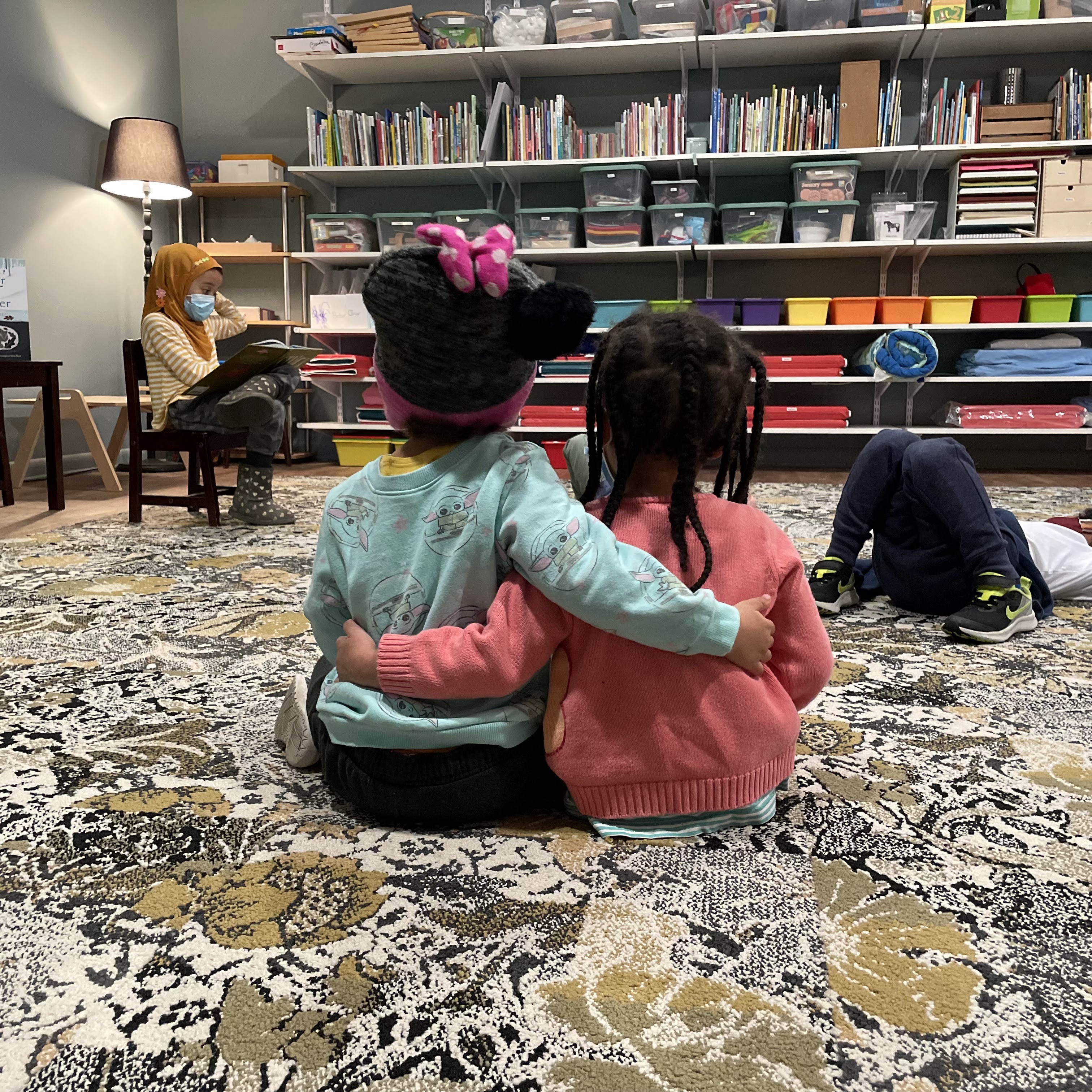
Clover Montessori School is an inclusive Montessori environment in the heart of the Mt. Airy neighborhood of Philadelphia. As Philadelphia residents, Founding Teacher Leaders Eileen and Jake identified the Mt. Airy community because of its rich socioeconomic and racial diversity, as well as its need for more high-quality child care centers. Their students benefit from community access to a local park, library, and neighboring small businesses where children can learn and explore on their path to becoming global citizens.
Jake and Eileen have over 20 years of collective classroom experience and are committed to bringing high-quality Montessori to all children. Serving a more diverse group of students motivated them to start their own school because many of the schools they taught at in the past were exclusive, despite the best intentions of school administrators. At Clover, they are able to work with families directly to help them access various state and local childcare subsidies, and they also offer tiered tuition so that they can teach in alignment with their values and bring the Montessori pedagogy to more families.
As they worked to open Clover, Jake and Eileen had to navigate a string of challenges in licensing and COVID-related delays, but their families stuck with them. Their inaugural group of students was eager to be in the classroom, and families were attracted to their values of diversity, equity, and inclusion. “Being upfront about our school’s goals drew really amazing families to us,” Eileen expressed. “Now, we’re at the point for next year where we have a waitlist. The people who are waiting are waiting because they believe in our mission.” Their tight-knit community comes together around parent education nights and other gatherings, and Clover is helping plant the seeds for a sustainable ecosystem of beautiful, high-quality Montessori microschools in Philadelphia.
Impact Story
Sundrops Montessori
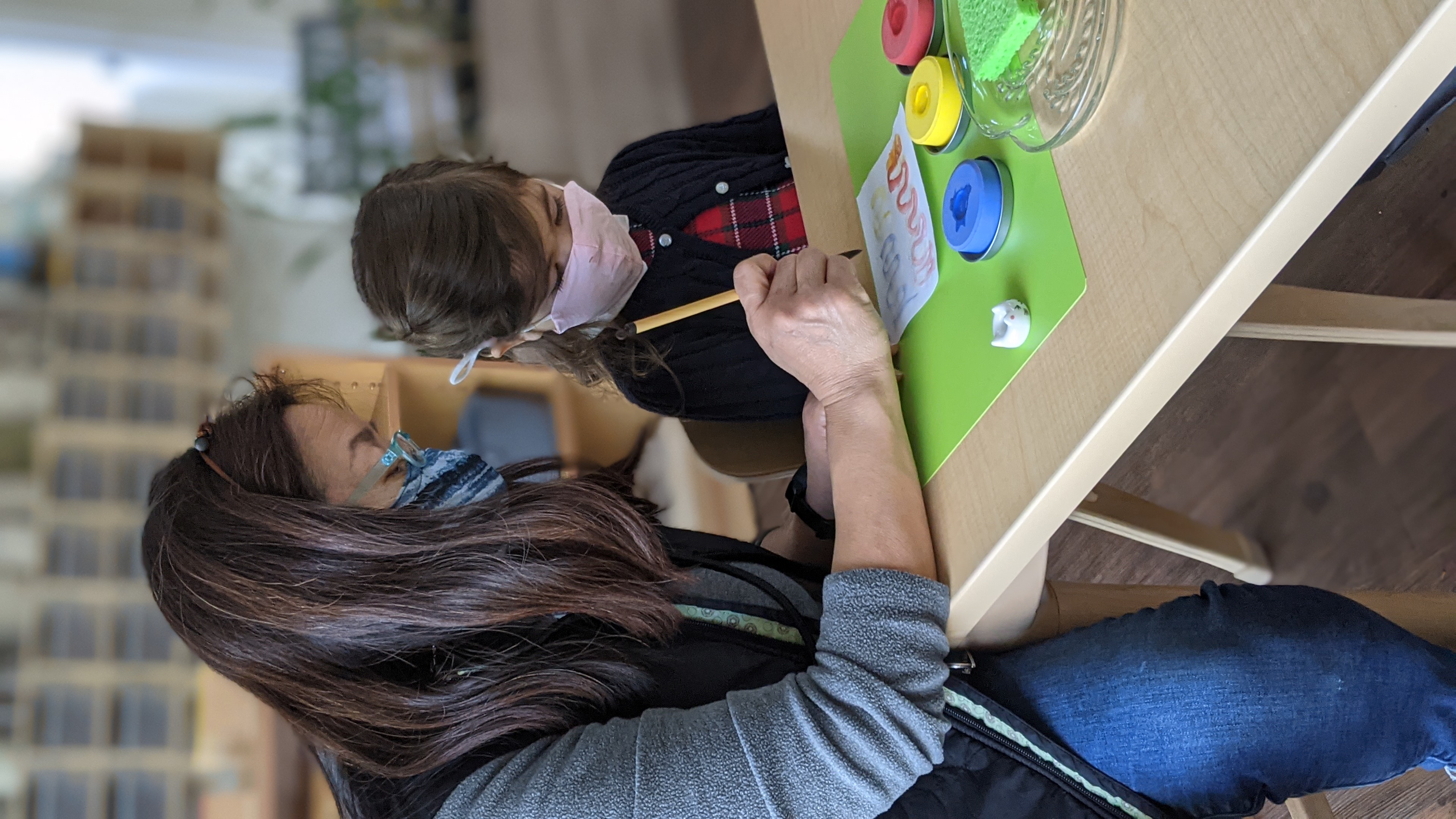
Sundrops emerged from collective visions of the management of the El Rancho Verde affordable housing development in San Jose—who wanted a Montessori school to serve the families in the community—and founding Teacher Leaders Helen and Encarna, who jumped at the opportunity to open their school in the beautiful new space within a culturally and socioeconomically diverse community. Just within El Rancho Verde, there are 700 units, including many multigenerational immigrant families.
As immigrants to the U.S. themselves, Helen and Encarna are passionate about providing accessible, authentic Montessori education combined with nurturing and healthy family engagement. They both began their Montessori journey along with their young children. After teaching at local Montessori schools for a combined 20 years, they each reached out to Wildflower about starting their own school, and Wildflower Bay Area staff introduced them. In a twist of fate, they already knew each other. Twenty years earlier, Helen worked with Encarna’s husband. Their mutual respect and friendship formed the base of a strong partnership, and Sundrops was born.
Through COVID-19, they have felt fortunate to have achieved their license and opened during such uncertain times. They were one of the first schools in California to be licensed virtually during the pandemic, walking the inspectors through their classroom via iPad as Helen and Encarna took detailed measurements. In addition, their strong network of support—from the housing development, their families, and Wildflower—enabled them to start in February with a soft launch serving a small number of students as they focused on building enrollment through trusting relationships with area families.
Impact Story
Roxbury Roots Montessori, Inc.
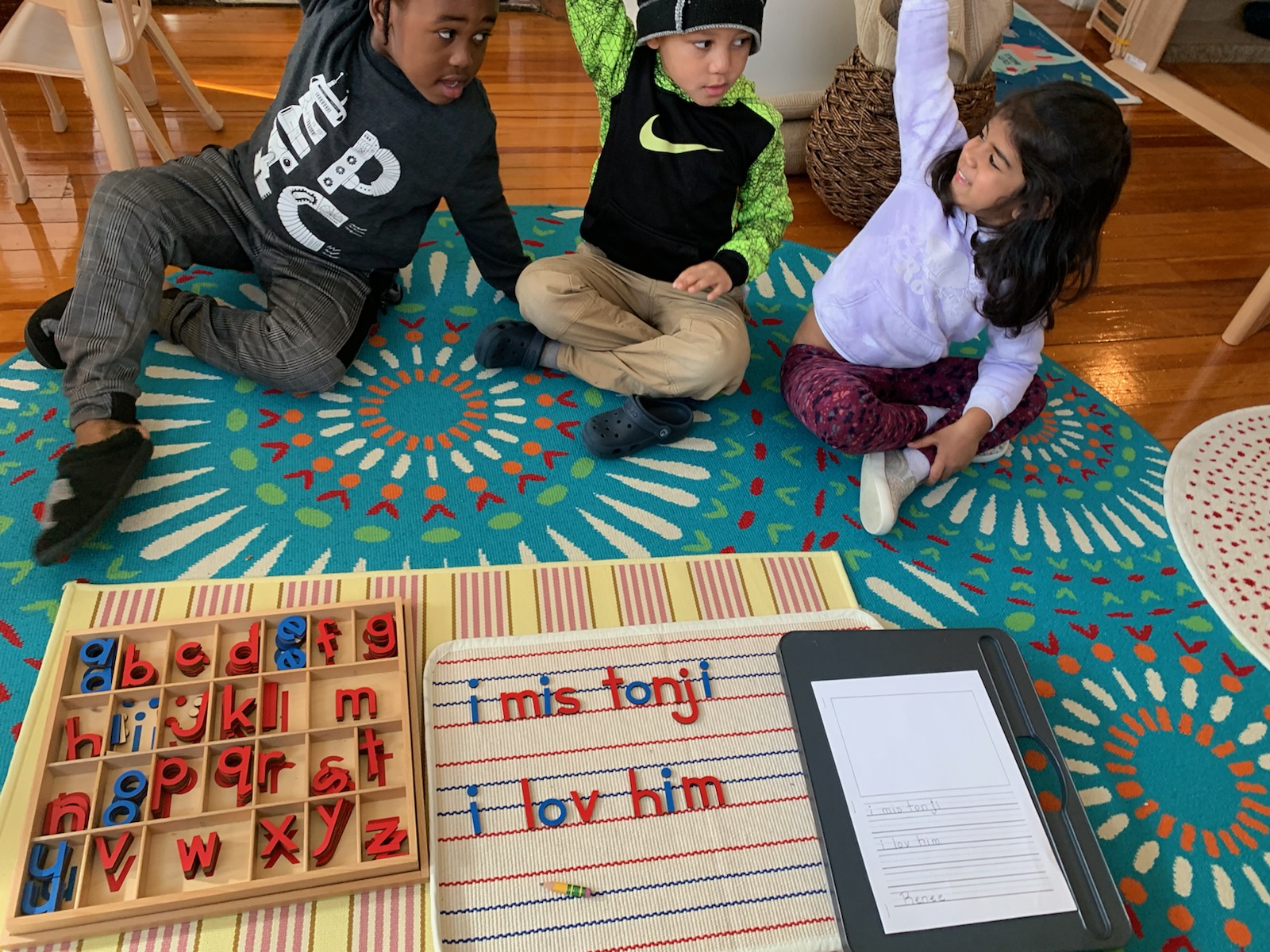
Roxbury Roots is the dream of its founders, Renee Jolley and Kendall Allen. Renee grew up in the Boston neighborhood of Roxbury and wanted to bring the magic of Montessori education to her community. The program began as a parent-child initiative, educating parents on how to complement their child’s education at home. It grew into a small, home-based program, and now Roxbury Roots will be able to serve more families as it opens a beautiful, community-embedded microschool in the heart of the Roxbury neighborhood.
After becoming a Montessori guide, Renee spent months of her time driving outside of her community to teach in different schools. When describing her work to friends and family with children, they would say, “That sounds like an awesome education. I wish it were here.” Thus, Renee crafted a vision: bring Montessori education to Roxbury, make it affordable, and bring an Afrocentric focus for Black students and families from all backgrounds who want to expose their children to a multicultural learning environment.
Renee found an ideal partner in Kendall Allen after training together at New England Montessori Teacher Education Center and participating in the Wildflower Massachusetts fellowship program together. Kendall took advantage of the opportunity to partner with Renee because she also wanted to create an Afrocentric school that honors the passions and interests of young students, inspired by a school she attended from kindergarten through third grade.
Roxbury Roots has been supporting children and parents in a small, home-based pod during the pandemic until their beautiful center in Roxbury is complete this summer. Roxbury Roots also seeks to expose children to languages, including American Sign Language and Kiswahili, and positive images of people from the Black diaspora, to instill a sense of pride and empowerment in their students.
Impact Story
The Dahlia School of San Francisco
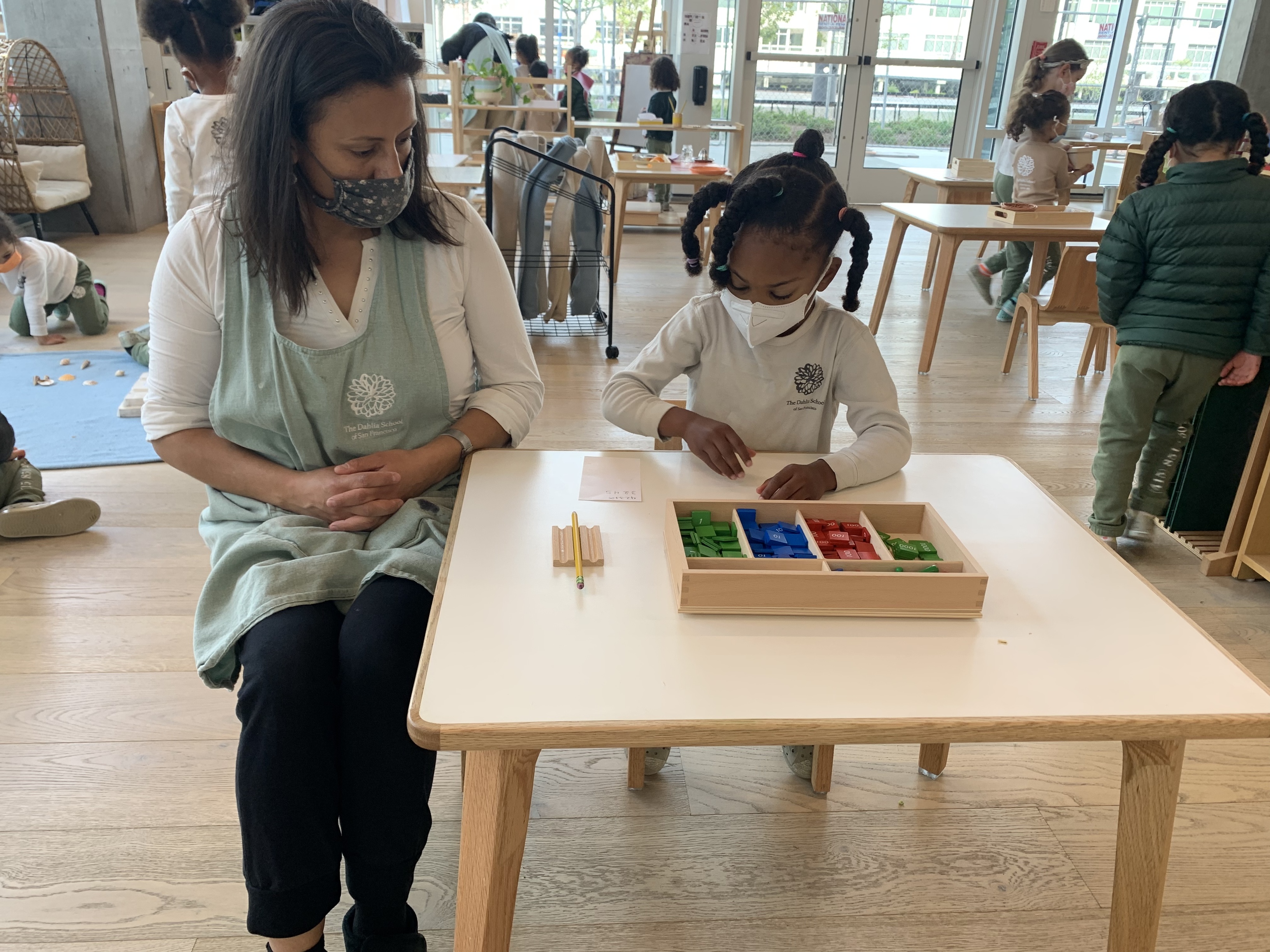
The Dahlia School is an authentic Montessori Spanish immersion school in San Francisco’s Mission Bay neighborhood. Bay Area locals Alejandra Tryon and Lindsey Barnes dreamt of starting an intentionally diverse, equitable Spanish-immersion program. Lindsey, a Mission Bay resident and former technology marketing manager turned Montessorian, was eager to do something about the lack of accessible, high-quality schools in her community. She partnered with seasoned Montessorian, Alejandra Tryon who brings significant experience leading Spanish immersion programs and coaching teachers and parents. Together, they launched the two-classroom school serving children ages 18 months to 6 years.
Lindsey and Alejandra knew Mission Bay needed a Montessori program and a place for the community to come together across lines of difference. Still, the extraordinary real estate situation in the city made the entire project challenging and costly. Leasing and renovating space cost more than $1 million, which they pulled together through a $260,000 grant from the city of San Francisco, $550,000 of tuition pre-payments from families, loans from Wildflower, and more than $30,000 in private fundraising. “San Francisco is one of the most inequitable places in the world right now," Lindsey shared, “and if there’s ever a place that needs a Wildflower school, it’s here.”
They are united in their passion for opening up the world of Montessori to families who traditionally haven’t been able to afford it. At The Dahlia School of San Francisco, they provide fully customized, indexed tuition based on family income and accept San Francisco city vouchers. They are proud to prepare their students on a great path to contribute to society by supporting their academic and social-emotional skills to be in community, build friendships, and be accountable for their actions. They also enjoy coaching parents in positive parenting and Montessori methods at home. The Dahlia School’s re-enrollment rate is already strong, and the reception from families is bolstering their ambition to add an elementary program, beginning in the fall of 2022.
The information presented is provided by our portfolio partners for general informational purposes only. We have not independently verified for accuracy or completeness. The testimonials presented reflect the personal experiences and opinions of portfolio partners and their investees, and do not guarantee the same results for others.














